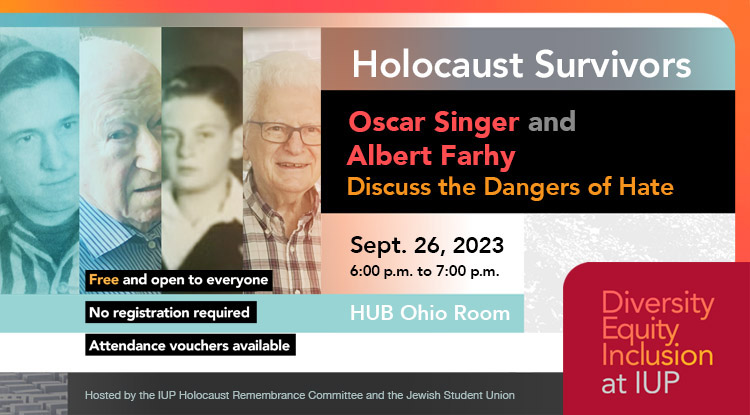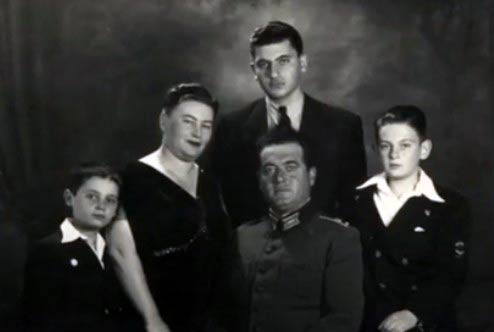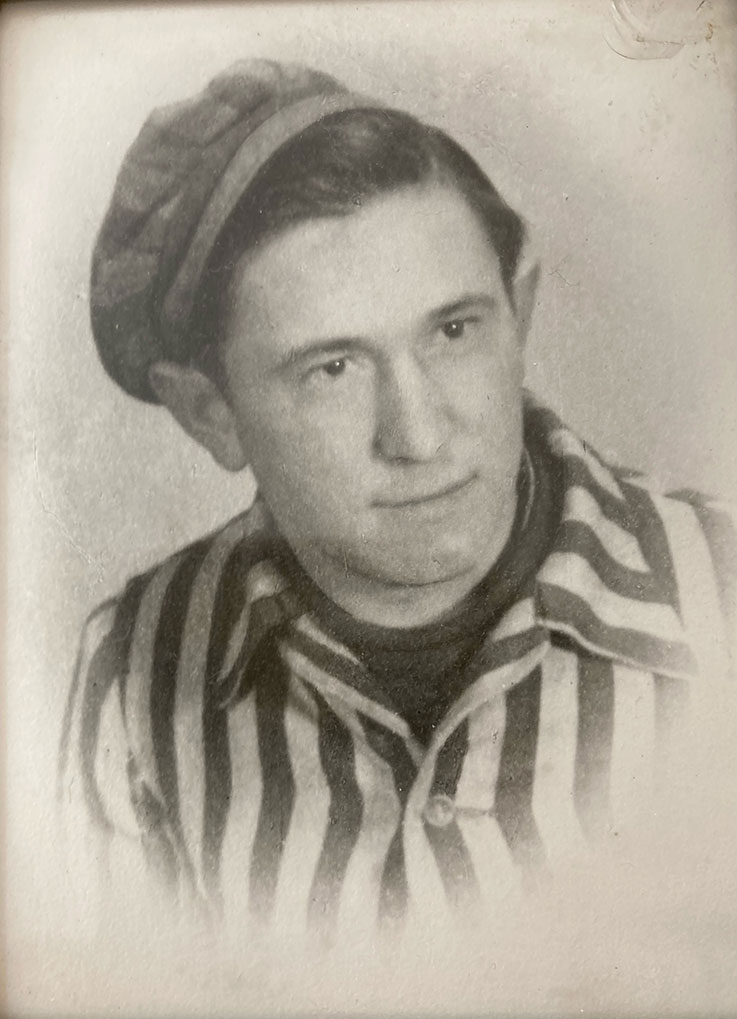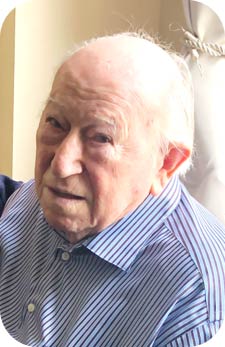
The Holocaust Remembrance Committee at Indiana University of Pennsylvania will host two Holocaust survivors for a special presentation on September 26 at 6:00 p.m. in the IUP Hadley Union Building’s Ohio Room.
The presentation is free and open to the community.
Holocaust survivors Oscar Singer and Albert Farhy will offer presentations about their experiences—Singer as a slave laborer in multiple concentration and death camps, Farhy as a resident of a Jewish ghetto in Bulgaria.

The Farhy family, with Albert at far right
The presentation also will highlight the difference made by the action of bystanders, as Farhy was not in a camp, due to heroic actions of Bulgarian citizens and government officials who did not comply with Nazi orders to deport Bulgarian Jews to Nazi-run camps.
Singer was 14 years old when his village in Poland became occupied by Nazi Germany. Over the course of the next six years, he was sent to four labor camps and two concentration camps, including Auschwitz and Theresienstadt, before being liberated by the Soviet army. He was the only member of his entire family that survived.
After the war, he moved to Colorado, married, and had two children. Several years ago, he moved to Pittsburgh to live with his daughter, Lee.

Oscar Singer as a young man
Farhy was 13 years old when his country of Bulgaria allied with Nazi Germany during World War II. He was forced to move from his home in Sofia to a Jewish ghetto in Pleven and then to Shumen with his parents and two brothers.
When Nazi officials ordered Bulgaria to send the Jews in their country to German-occupied Poland, there were protests from Bulgarian citizens (both Jews and non-Jews together), government officials including the vice chairman of the Parliament, Dimitar Peshev, and Archbishop Stefan, the leader of the Bulgarian Orthodox Church, who in 2002 was named “Righteous Among the Nations” at Yad Vashem for his part in saving Bulgarian Jews.
Due to the protests, the deportations were stopped four hours before the trains were scheduled to leave. Ultimately, Bulgarian citizens saved the lives of 50,000 Jews during the Holocaust.
After the war, Farhy moved to Israel, then California, before settling in Pittsburgh with his wife and two children. He lived in Indiana briefly in the 1970s with his brother, who was the rabbi at Beth Israel Synagogue in Indiana.
“The best way students can combat antisemitism is by being friendly. Be patient with the person that is antisemitic,” Farhy said in a recent newspaper interview. “Engage him in conversation, peaceful conversation, and try to convince him that it is not good for him to have in his heart hate towards those people.”
“Through this event, the Holocaust Remembrance Committee and Jewish Student Union hope to show that IUP is a unified community dedicated to speaking out against antisemitism and all forms of hate,” Shannon Phillips-Shyrock, chair of the IUP Holocaust Remembrance Committee, said.

Oscar Singer, present day
“Together with Holocaust survivors Oscar Singer and Albert Farhy, members of the IUP community will discuss the importance of bystanders and the dangers of hate—especially when not addressed and allowed to continue with no response, sending the message that it is acceptable. The time is quickly closing to hear from Holocaust survivors firsthand, and their message is more important than ever,” she said.
IUP’s Social Equity and Title IX Office is providing funding for this program.
As part of this event, the Holocaust Remembrance Committee and Jewish Student Union are collecting items for the R. K. Agarwal MD & Family Teen Shelter in Altoona. Items needed include clothing for ages 12 to 17, hygiene products, individually packaged snacks, gift cards, school supplies, crayons, coloring books, bicycles, and sporting equipment. Donations can be brought to the September 26 presentation or dropped off in a collection box in Uhler Hall lobby until December 17.
For more information about the event, persons can contact Shyrock at sshyrock@iup.edu.